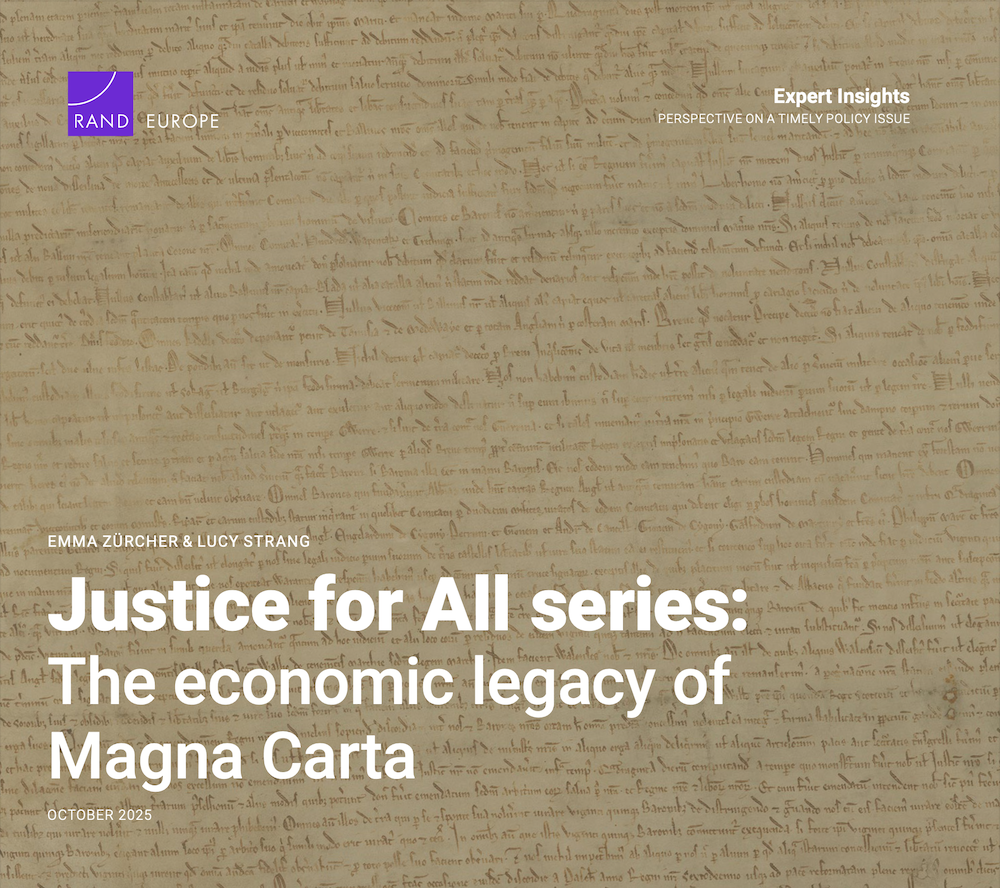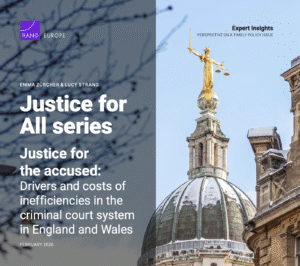RAND Europe’s first paper for the Justice for All Series explores how the principles established at Runnymede over 800 years ago continue to shape modern governance, law, and economic growth.
Drawing connections between Magna Carta and the United Nations’ Sustainable Development Goal 16 (Peace, Justice and Strong Institutions), the research shows how access to justice and fair governance remain central to social stability and economic prosperity.
From thirteenth-century reforms limiting royal power to today’s calls for investment in justice systems worldwide, the paper makes a compelling case that justice is not only a moral imperative but also an economic one.
The study highlights:
- How legal predictability and property rights helped establish the foundations of market confidence
- The link between access to justice and measurable economic growth
- Why investment in justice today can yield returns similar to those of major infrastructure programmes
RAND Europe’s research invites policymakers, business leaders, and civic institutions to consider how the rule of law—then and now—can drive sustainable development.
Learn more about RAND Europe at www.randeurope.org.
This briefing paper was prepared to support the second event of the Justice for All conference series, ‘Justice for the Accused.’ RAND Europe is a research partner for this series, which is a year-long programme of events that examines the challenges facing modern justice systems. This paper reflects on the drivers and costs of inefficiencies in the criminal court system in England and Wales.
The effective functioning of the criminal justice system is essential for maintaining public confidence, ensuring fair outcomes and the rule of law. However, recent evidence suggests that the system in England and Wales is struggling to fulfil its key functions due to persistent, interacting inefficiencies. These inefficiencies not only increase operational costs but also risk undermining the delivery of justice.
Learn more about RAND Europe at www.randeurope.org.


